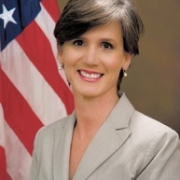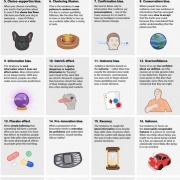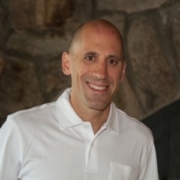The Global Ethics Summit: Culture at the forefront
 Last week, I had the pleasure to attend The Global Ethics Summit, put on by The Ethisphere Institute. The event brought together over 400 people with broad perspectives on managing ethics within organizations, including ethical culture, encouraging speak-up culture, and best practices for Board management.
Last week, I had the pleasure to attend The Global Ethics Summit, put on by The Ethisphere Institute. The event brought together over 400 people with broad perspectives on managing ethics within organizations, including ethical culture, encouraging speak-up culture, and best practices for Board management.
At the plenary on company culture, it was instructive to hear strategies companies are using to address one specific challenge – how do you use the lever of values to change behavior and outcomes in organizations? For us at Ethical Systems, this panel was particularly important because we recognize that creating and maintaining ethical culture within an organization is key to supporting everyday ethical behavior.
One panelist identified that a culture of compliance doesn’t necessarily correlate with an ethical culture because people can be compliant without integrity. To elevate ethics, the company has undertaken a large-scale project to simplify their internal policies, often dense in wording and written with regulators in mind. Too many rules incentivize employees to look for loopholes, so making policies more concise and principles-based can help drive more ethical behavior. Such a project is a massive undertaking likely contemplated by many and shown here as a successful first step towards demonstrating an ethical culture. This is consistent with Philip Howard’s perspective that in many circumstances rules and laws have been overly-precise, thus strangling the ability of people to make judgments in individual cases, what he describes as a “formula for paralysis.”
Speakers on this and other panels also highlighted the challenges of cultivating a culture in which people feel comfortable to speak-up about observed misbehavior, well before it gets to a formal complaint. Specifically with respect to Millennials, who panelists observed as more willing to voice their opinions, companies would like to help them understand the types of issues that they need to speak up about. However, identifying that you’re in an ethical dilemma can be challenging, particularly for more junior employees who want to prove themselves and not rock the boat. This insight will help managers approach their teams with a broader educational goal in mind while helping them relate to the new generation of organizational leaders.
Ultimately, the challenge of creating a speak-up culture is behavioral – as much as managers want to encourage new ideas and innovation, they still shudder to hear bad news. One panelist at the “Beyond the Hotline” session recalled that to encourage managers to create speak up conditions, he conducted an informal survey among staff about how often they get reports of bad news. It turns out that they found those who received more such news were also in divisions of the company that had better performance outcome.
While this was an aside amidst a larger conversation, the results correspond with the current studies on employee voice, in particular a 2015 study published in the Administrative Science Quarterly by James Detert and co-authors Ethan Burris, David Harrison and Sean Martin who studied the various “flows” of speaking up within organizations (to a boss, to peers; and inside or outside a focal unit) and their impact on performance of a business unit (albeit in this study they did not focus on objective financial performance metrics, but rather ratings of performance by senior managers at the firm). Their results indicate that “voice flows are positively related to a unit’s effectiveness when they are targeted at the focal leader of that unit—who should be able to take action—whether from that leader’s own subordinates or those in other units, and negatively related to a unit’s effectiveness when they are targeted at coworkers who have little power to effect change.” An intuitive outcome that paves the way for further discussion relating to how managers can integrate such insights into their day-to-day approach.
Of course, these strategies are effective only after a company truly commits to ethics as a business practice and is searching for ways to align their formal and informal company cultures. The emphasis on ethical culture in today’s work environment, particularly for regulated firms, provides an opportunity for synergy across various departments of a company (HR, compliance, legal, etc.) to collectively escalate ethics to a value that can be a force for good.
The Global Ethics Summit was truly that- inclusive in its approach and broad in its lessons for participants. As we move forward with our projects for the new year, we will build off the knowledge and research presented at this event and look forward to sharing several exciting new developments in the coming months.
Further Reading








